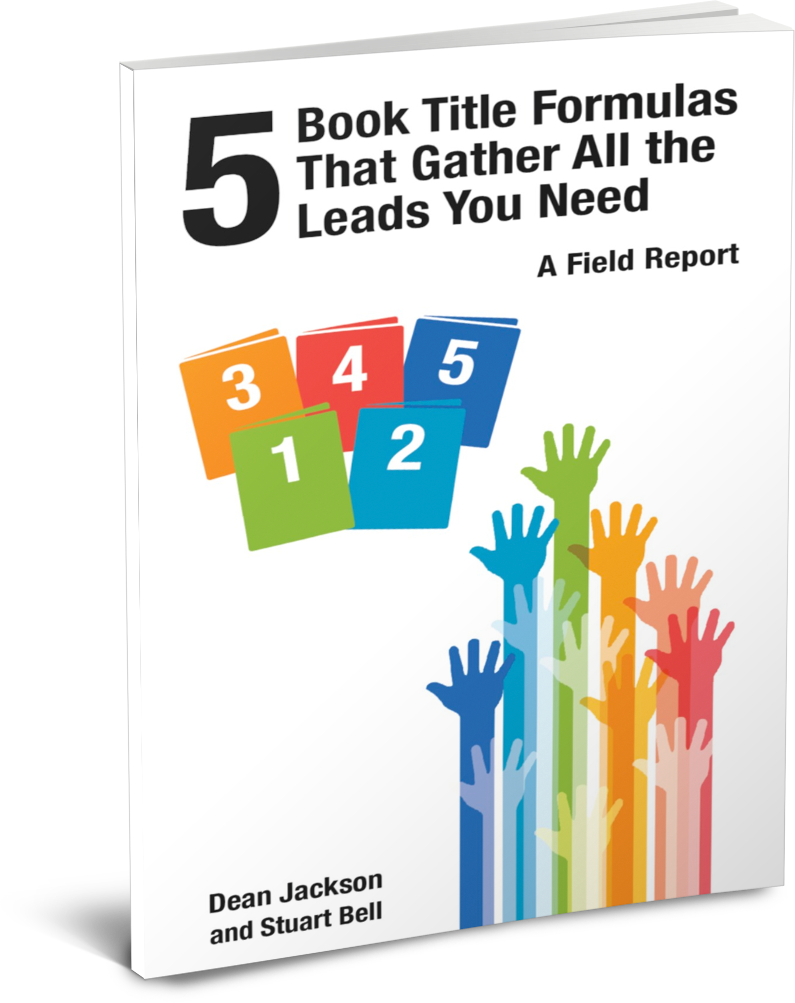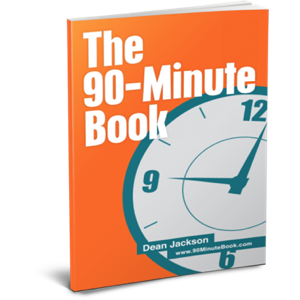Coming up with a suitable name for a book is a critical task. This will endure perpetually, and opting for a book title that explains your work decently is critical. This will draw in readers and arouse interest in finding out more about your work.
Why Your Book Title Is Important
Book titles are important because they are the first thing potential readers will encounter, thus influencing their desire to learn more about the book. This will remain a part of your book for a long time, so it is very important to select one that accurately shows your work.
The title of your book should be a representation of what it contains. This text should provide readers with a notion of the content in your book and spark their enthusiasm to learn more. The name should be distinctive to differentiate itself from the other books available.
The name of your book should be eye-catching and thrilling, as it will be one of the main things people will come across when they look at it. A well-chosen name will attract people to explore your book further, while an errant title will repulse them.
What to Consider For Your Book Title
Now that we’ve gone over why the title matters, let’s look at what factors should be considered when creating a title.
There are several things to think about while choosing a book title, such as:
The genre of your book
The genre of a book can be useful when generating incredible ideas for the title. It’s necessary to pick a label that precisely describes the material contained in it, which should agree with the book’s subject.
Make your title as exact as possible and guarantee it accurately mirrors the material. This will assist in luring the ideal audience and guarantee they comprehend what they are beginning when they peruse your work.
The tone of your book
Your book can have various tones, ranging from comical to mysterious.
It is vital to pick a title that reflects your book’s atmosphere correctly. You don’t have to limit yourself to creating a single-word or working title related to your work, but don’t stop coming up with ideas. A heading that does not match the atmosphere of your writing could discourage readers and make them less willing to look at your book.

FREE BOOK
Discover the 5 Compelling Book Titles Types that create an ‘I Want That…’ response.
The length of your book
You should ensure that the name of your book is a correct representation of its size. An excessively lengthy or overly brief title can be off-putting to readers and decrease the likelihood of them wanting to read your book.
The size of your book will also determine the number of words that can be used. For a smaller book, decide on an articulated title to prevent it from being overly extended. If your writing is extended in length, it’s suitable to pick a lengthy title to accurately portray its size.
Your target audience
If you aim for a successful book title, you should remember who your intended readership is. The title should express the text’s main points and be attractive to those who might read it.
Pondering over your envisioned readership is key when deciding and formulating a book title. This will aid you in attracting the correct audience and letting them know what they should anticipate when reading your writing.
Your book’s subject matter
In conclusion, you should think about what your work is about. The book’s name should relate to the information and describe the subject matter precisely.
It is essential to be as precise as you can when deciding the title of your book to ensure that it portrays precisely what your work conveys. This will assist in drawing in the right target audience and guarantee they know what awaits them when they read your work.
Tips for Choosing the Best Title for Your Book
Now that you know what to consider when choosing a book title, here are a few tips to help you come up with the best one:
Brainstorm a list of potential book titles.
Crafting a book title can be intimidating, but it doesn’t have to be. Coming up with a list of potential titles is an excellent way to improve yourself.
Grab a piece of paper and a pen, then begin listing possible ideas for your book. You could have been contemplating a unique label or concept for a lengthy time. This could be linked to your book cover, a well-known saying about the topics in your book, or a memorable phrase.
Write down anything that comes to mind as the perfect title, no matter how silly it may seem.
Develop a selection process for your list of potential titles by narrowing it down. Take away titles that are too large or too small, do not capture the book’s essence, or do not attract your desired viewers.
You could note an initial title that is strong but could be altered in the future. Once you have created a list of potential titles meeting all requirements, it is time to examine them to see if they are noteworthy and compelling enough to draw viewers.
Narrow down your title ideas
Be sure your book title is not too close to anyone else’s, particularly if it’s a mundane phrase or fiction titles have the exact same wording. You want your title to be eye-catching or distinctive but not so similar to another that it might cause confusion.
This could be an issue if your book belongs to a style of writing that has many different works already published. To make your work stand out, you must ensure that the title is unique compared to other works.
A book’s title can make or break your book, so choosing wisely is essential.
Examine other books in the same category and figure out how yours measure up. If your title is too close to another, you should take it off your list of book names.
Choose the title that best represents your book and its contents
Coming up with creative titles is great. However, finding one that resonates with your literary piece is the most difficult part. Remember all of the topics brought up before when you decide what to do.
After narrowing down your potential titles, you should select the one that accurately represents your book and its material. If you’re exploring possibilities for a title for your fiction story or a single-word title, be sure to only consider the best possible titles when you’re done.
Inspect your compilation of titles and select the one that you believe best exemplifies what the material contains. You should select the option that is the most precise representation of your book. Ensure the label is simple to recollect and attractive enough to be distinguished.
The 5 Attributes Of A Good Book Title
A good title should have all of these attributes:
- Attention-Grabbing
- Memorable & Searchable
- Informative
- Easy & Not Embarrassing to Say
- Short
1. Attention-Grabbing
A million things are pulling people’s attention. The appropriate name can help you be noticed and form a positive impression. A boring title is a killer.
There are many ways to grab attention. Your title should grab people’s attention, such as being thought-provoking, contentious, thrilling, or offering an enticing pledge.
Here is what #1 best-selling author Tim Ferriss says about titles:
Some people were upset by the book “The 4-Hour Workweek,” and others made fun of it, which I thought was a good sign. Jay Leno targeted the book for parody on TV for a reason; the title was meant to invoke amusement. A powerful positive reaction is impossible without a powerful negative reaction, and most importantly, be wary of apathy from everyone. ‘Oh, that’s nice. I think it’s pretty good,’ is a death sentence.“
2. Memorable & Searchable
It is simpler to evoke a response from someone and then not be remembered than to elicit a reaction and remain within their memory.
Remember that a book name is not only the initial thing a reader knows about your book, but it is the sole piece of data a possible reader has that directs them to the book itself.
If someone a person knows suggests they read a particular book but can’t recall the book’s title, they can’t locate and purchase it in a shop or through Amazon. Best-selling author Scott Berkun says it well:
Often the title alone is all that a potential buyer will ever interact with. If it catches their attention, it’s the first step of many in the difficult journey of getting recognition. But titles only help so much.
Most people discover information from books, like how they learn about new musical groups. Or new people to meet. A reliable acquaintance or source informed them that it
The title, at that point, serves as a moniker. It’s an essential concept to recall to obtain the desired result, plus a bit extra.
You want the book title to be easy to find via a search. In today’s society, people rely on searching to discover things. If your title isn’t easy to recall and can’t be found easily on Google and Amazon, that is a major problem.
3. Informative (Gives an Idea of What the Book is About)
This element is not as important in fiction but vital for non-fiction. The title, along with the subtitle, should provide the reader with an indication of the content of the book.
Individuals will not do the job in your place; the simpler you make it to comprehend the topic, the more probable it is to attract those who would find your book intriguing.
Would asking yourself, “If I mentioned the title of my book at a party, would people know what it’s about?” be a good indicator of how successful it will be?
If so, that’s probably a bad title.
Don’t out-think yourself on your title. A name for a book that is overly complicated or hard to interpret suggests the item is intended for those who can immediately comprehend its meaning – this leads people who don’t instantly get what it means to feel stupid (and less inclined to purchase the book).
By choosing a term or expression that your target liaison might not understand straight away or which does not make the point of your book clear, you are setting yourself up for failure.
The title of your book should make sense and be understood easily, yet it doesn’t need to explain everything in the book. For example, Malcolm Gladwell’s popular Outliers is an excellent example of giving a hint at its contents without explicitly spelling it out.
4. Easy & Not Embarrassing To Say
Having a straightforward name is known as cognitive fluency. People are inclined to remember and react to words and phrases they can immediately comprehend and pronounce.
Do not attempt to appear sophisticated, even if it means you may be incomprehensible.
It is a well-known phenomenon that people tend to find social discomfort unpleasant. If a novel title is tricky to pronounce or, worse yet, sounds foolish when said out loud, it will make someone less likely to purchase it and likely clinch the fact that they won’t be talking about it with anyone else.
When deciding on your book title, it is essential to mull over the potential for word-of-mouth. Contemplate how people will react to pronouncing this book name to their acquaintances. Does it make them look smart or stupid?
The most embarrassing name causes someone immense shame when uttered in public. For instance, even if the content of “Why Racism Is Great” is remarkable, people are unlikely to share it with their network, given that doing so would invite uncomfortable queries about what motivated them to purchase the book. The significance of social context cannot be underestimated.
It would be impossible to express any of these titles from the list of undesirable books in a serious manner to your companions.
5. Short
Generally speaking, shorter titles are best. A succinct title is stickier and smoother to speak for your target demographic and allows room and liberty to produce a more comprehensive work cover. A one-word title is the best.
People are enticed to compose precise and verbose titles to express the book’s concept and readership. In the title, stick to the core idea. If you feel like being verbose, have the subtitle do the talking.
Try to limit the title to 5 words or fewer if you can. The subtitle can provide additional information regarding the material to which the reader will be exposed. The book by Cameron Herold called Meetings Suck has a succinct label and an explanatory subtitle that shows why it should be read – turning the most despised part of the business into one of the most useful.
Guest Post Disclaimer
The views expressed in this post do not represent the views of 90-Minute Books. The information has not been verified and should be considered an opinion. You are always advised to do independent research.











